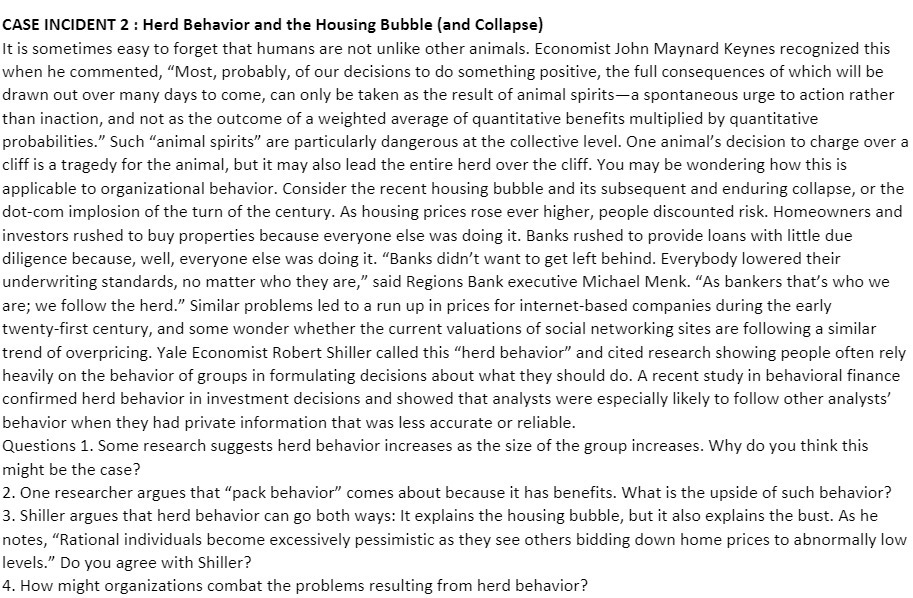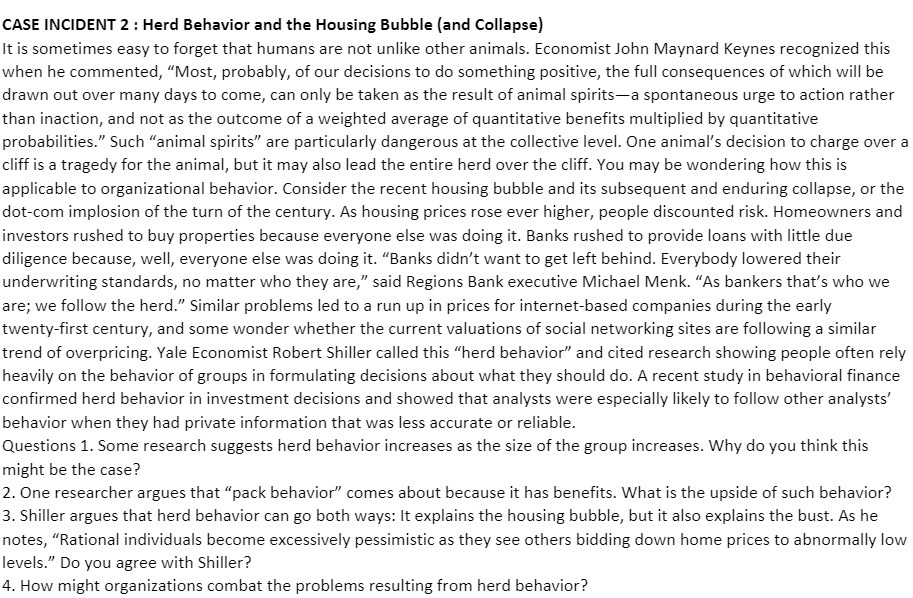
CASE INCIDENT 2 : Herd Behavior and the Housing Bubble (and Coiiapse} It is sometimes easy to forget that humans are not unlike other animals. Economist John Maynard Keynes recognized this when he commented, "Most, probably, of our decisions to do something positive, the full consequences of which will be drawn out over many days to come, can only be taken as the result of animal spiritsa spontaneous urge to action rather than inaction, and not as the outcome of a weighted average of quantitative benefits multiplied by quantitative probabilities." Such \"animal spirits\" are particularly dangerous at the collective level. One animal's decision to charge over a cliff is a tragedy for the animal, but it may also lead the entire herd over the cliff. You may be wondering how this is applicable to organizational behavior. Consider the recent housing bubble and its subsequent and enduring collapse, or the dot-com implosion of the turn of the century. As housing prices rose ever higher, people discounted risk. Homeowners and investors rushed to Jbuy properties because everyone else was doing it. Banks rushed to provide loans with little due diligence because, well, everyone else was doing it. \"Banks didn't want to get left behind. Everybody lowered their underwriting standards, no matter who they are,\" said Regions Bank executive Michael Menk. "As bankers that's who we are,' we follow the herd.\" Similar problems led to a run up in prices for internetbased companies during the early twentyfirst century, and some wonder whether the current valuations of social networking sites are following a similar trend of overpricing. Yale Economist Robert Shiller called this \"herd behavior" and cited research showing people often rely heavily on the behavior of groups in formulating decisions about what they should do. A recent study in behavioral nance confirmed herd behavior in investment decisions and showed that analysts were especially likely to follow other analysts' behavior when they had private information that was less accurate or reliable. Questions 1. Some research suggests herd behavior increases as the size of the group increases. Why do you think this might be the case? 2. One researcher argues that \"pack behavior\" comes about because it has benefits. What is the upside of such behavior? 3. Shiller argues that herd behavior can go both ways: It explains the housing bubble, but it also explains the bust. As he notes, \"Rational individuals become excessively pessimistic as they see others bidding down home prices to abnormally low levels.\" Do you agree with Shiller? 4. How might organizations combat the problems resuiting from herd behavior








